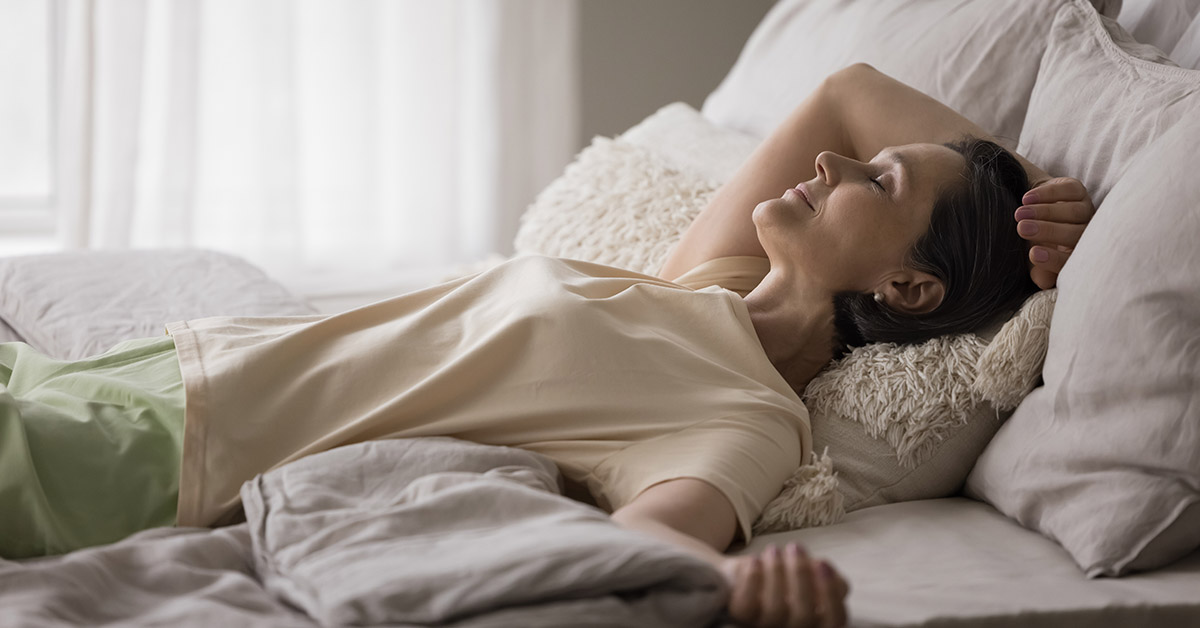The human body is a miraculous part of nature. So many microscopic systems have to work cohesively for a person to function. For instance, the body sweats to cool down in hot weather and shivers to warm up when it’s cold. But sometimes the body does things that don’t inspire awe and gratitude. In fact, some bodily reactions just inspire a very confused “Why did that just happen?”
Hypnic jerks

You’re just about to drift off to sleep when your body jolts as if you were about to fall off your bed. Now you’re fully awake again. Researchers do not know the exact reason for this reaction but some theorize that when the muscles relax, the brain mistakes this for falling and jerks the body in response. Sometimes, hypnic jerks are accompanied by dreams that involve some kind of falling so the body — in a semi-awake, semi-sleeping state — reacts as if the danger were real. If you experience this regularly alongside other symptoms like jolts during the day, speak to your doctor. Otherwise, try reducing your consumption of caffeine and stimulants, and avoid vigorous exercise before sleep. Emotional stress and sleep deprivation could also heighten the risk of this strange bodily reaction.
Read More: 14 Foods To Help You Sleep (+ Foods to Avoid)
Skin wrinkling in water

This occurs when water seeps into your skin and causes blood vessel constriction and thereby swelling. “Evolutionary experts are finding evidence that it may have actually helped humans to grip objects better when in water,” says Amy Rantala, MD, family medicine physician at Mayo Clinic Health System in Wisconsin. “People who have nerve damage to their fingers or toes will often not have this same wrinkling of fingers.”
Tasting metal before vomiting

Throwing up is an uncomfortable experience, but at least there’s a warning in the form of a metallic taste in the mouth. “That’s water brash,” John F. Kuemmerle, MD, professor in the division of gastroenterology, hepatology, and nutrition at the Virginia Commonwealth University School of Medicine. “When things are getting ready to come back up into the esophagus, there is a reflex that causes you to salivate heavily.” This bodily reaction protects the mouth from the vomit’s acidity.
Hearing a pulse

You may hear your heartbeat in one or both of your ears while lying down or sitting in a quiet room. This happens because of the bloodflow in the head and neck. “We often think of tinnitus as ringing in the ears,” says Dr. Rantala. “But this is a variation where the person feels and hears the pulse in their ears called pulsatile tinnitus.” It’s generally a harmless symptom but if it occurs frequently, it might be a sign of high blood pressure or blockages in the ear canal.
Brain freeze

If you eat frozen food or drink a cold drink too quickly, you may experience temporary brain freeze. This happens when the temperature of your throat rapidly swifts from warm to cold, making two arteries dilate and contract rapidly. These arteries at the base of the head cause the brain’s outer membrane to feel a rush of pain. Fortunately, this bodily reaction not a harmful although you may want to eat or drink more slowly.
Eyelid twitching

Also called blepharospasm, eyelid twitches can start randomly and continue for minutes or even days. (But if it does last for days, speak to a healthcare professional.) It may be irritating but it doesn’t typically affect vision. “We don’t know why this happens exactly but fatigue, caffeine, and stress are common culprits,” says Dr. Rantala. “I often recommend trying to stretch the muscle that is twitching.” Artificial tear eye drops may help alleviate twitching from dry eyes.
Read More: Sweating In Your Sleep? 7 Possible Reasons for Night Sweats
Side stitch

“A side stitch is caused by irritation to the diaphragm, the muscle that separates the lung cavity from the abdominal cavity,” says Dr. Rantala. Runners and joggers are often familiar with this painful sensation, especially beginners. This kind of exercise can cause the abdomen or lungs to put extra pressure on the diaphragm, restricting blood flow, and resulting in spasms. Deep breathing and avoiding fatty meals before exercise could help reduce the risk of this bodily reaction.
Seeing spots

Normally, we are able to see because the photoreceptors in our eyes turn light into electrical impulses that go to the brain. “When a camera flash goes off, it’s so bright that it’s overstimulating the photoreceptors,” said Elaine Icban, assistant professor of clinical optometry at the New England College of Optometry. “It takes awhile for those photoreceptors to get back to normal so the eyes see the afterimage of that flash.”
Charley horse

Charley horse is a funny nickname for a painful muscle cramp. The exact reason for these spasms aren’t known but some researchers theorize it occurs when the nerves are firing off the muscles, causing them to seize up. The cramps can usually be treated with some stretching. They can come as a result of exercising in hot temperatures, working muscles too hard, inadequate stretching, dehydration, and not consuming enough magnesium or potassium.
Goosebumps

Goosebumps is the name for those skin bumps that appear when a person feels cold or scared. It happens when adrenaline makes the skin muscles at the base of hair follicles contract, making the hair “stand up straight”. Though it doesn’t have much use for humans, this mechanism can help shield animals from the cold and make them appear larger to predators.
Read More: This is what sleeping on the left side does for our brain, stomach & glymphatic health
Sources
- Jay Summer, John DeBanto. “Hypnic Jerks: Why You Twitch In Your Sleep.” Sleep Foundation. May 1, 2024
- Amy Rantala, M.D. “Q&A: The science behind weird body reactions.” Mayo Clinic Health System. August 3, 2023
- Amanda D Henderson, M.D. “Eye Twitching.” Johns Hopkins Medicine.
- Mary Anne Dunkin. “Charley Horse.” WebMD. January 8, 2023

